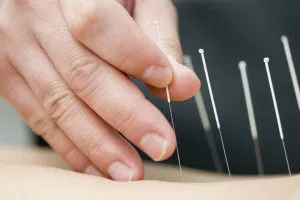Since the beginning of time, women have had to cope with the effects of menopause. This time in a woman’s life not only signals an end to her fertility, but can also bring about numerous physical and emotional side effects.
Along with moodiness, weight gain and an end to ovulation, hot flashes may be the defining symptom of menopause, and one that nearly all women will experience to some degree. Hot flashes differ in severity for everyone, but are generally categorized as a sudden rise in body temperature.
This sudden spike can be experienced throughout the body or be localized to one area. Hot flashes are sometimes accompanied by red blotches, flushing, sweating or even shivers.
While not physically debilitating, hot flashes can be annoying and can affect a woman’s quality of life. Without much of a warning, this rapid spike in body temperature can be a source of embarrassment, and may leave one wanting to avoid social situations.
The general and most-common treatment method historically has been hormone replacement therapy. These medications utilize synthetic variations of the female hormones estrogen and progesterone, thus tricking the body into believing natural hormone levels are unchanged.
Yet in recent years, more and more women have been avoiding these medications for fear of the numerous side-effects associated with them, including increased risk of stroke, heart disease and even some cancers.
Rather than having to cope with these unwanted sweats, a new study has found that the holistic practice of acupuncture may be the answer that many women are looking for.
In the study published in the journal Menopause, researchers performed a meta-analysis of over 100 studies that assessed the effectiveness of acupuncture as a treatment for hot flashes in menopausal women.
In the 12 selected studies, researchers analyzed 869 women between the ages of 40 and 60 who were experiencing natural menopause. They concluded that women who underwent acupuncture treatments experienced reduced severity and frequency of hot flashes for up to three months as compared to women who didn’t undergo the treatments.

While these finding are optimistic, researchers note that there is still much to be learned about menopause-related side effects, and continue to research alternative therapies. Other treatment methods that naturalists tout include herbal therapy such as black cohosh, ginseng and wild yam, as well as homeopathic treatments including cimicifuga, lachesis and sepia.
-The Alternative Daily
Sources:
http://www.medicalnewstoday.com/articles/279714.php
http://journals.lww.com/menopausejournal/Abstract/publishahead/Effects_of_acupuncture_on_menopause_related.98349.aspx
https://www.thealternativedaily.com/natural-and-alternative-approaches-for-menopause
